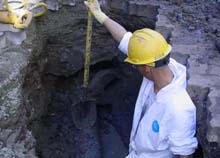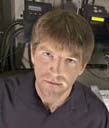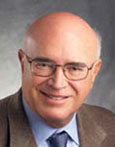|
|
Today
Noon
Yoga Club
Class with Naomi Hartwig
Bldg. 70-191
1 p.m.
Computational Research
Preconditioned Eigenvalue Solvers in Electronic Structure Calculations
Andrew Knyazev, U. of Colorado at Denver
Bldg. 50A-5132.
2 p.m.
UC Berkeley
Microfluidic Biotechnology
Tom Soh, UC Santa Barbara
390 Hearst Mining Bldg.
Tuesday
8 a.m. to 5 p.m.
Benefits Office
FITSCo One-on-One Counseling
Bldg. 939-202
Call (800) 642-7131 for appointment
10 a.m.
EHS 26
EH&S for Managers, Supervisors & PI's
Bldg. 70A-3377
1 p.m.
EHS 20
EH&S for Supervisors
Bldg. 70A-3377
4 p.m.
Life Sciences
Chromatin Boundaries and the Regulation of Gene Expression
Gary Felsenfeld, NIH
Bldg. 66 Auditorium
|
|
 |
|
|
 |
|
|
Morning Editions: Biscuits and Gravy with 2 Eggs
Tuesday's Breakfast: Cheese Omelet with Toast and Hash Browns
Market Carvery: Chicken Artichoke and Sun Dried Tomatoes
The Fresh Grille: Tuna Melt with Fruit and Fries
Menutainment: Viva El Burrito with Chicken or Pork
|
B'fast: |
6:30
a.m. - 9:30 a.m. |
| Lunch: |
11
a.m. - 1:30 p.m. |
| Full
menu

|
|
|
|
 |
 |
|
 |
|
Facilities Division laborer Jose Soriano digs by hand to reach the leak |
No ALS Interruption
While Leak is Repaired
Thanks to the quick thinking and skill level of several Lab Facilities Division employees, a major water leak near the Advanced Light Source was repaired without any interruption to research taking place there. Extensive digging was done by hand instead of using conventional machinery to prevent vibrations that might affect the beamlines in the ALS. Go here to read more about this delicate repair operation.
Lab Chemist Speaks
At AAAS Nano Seminar
|
|
|
|
 |
 |
|
|
Groves |
|
|
|
Jay Groves of Berkeley Lab’s Physical Biosciences Division spoke yesterday at the 2006 annual meeting of the American Association for the Advancement of Science in St. Louis. His talk, part of a multi-day nanotechnology seminar, focused on his pioneering work developing biologically inspired synthetic membranes that combine nanotechnology with biochemistry to give scientists a unique way to study biological systems. The new technique, called supported membrane nanotechnology, is already yielding advances in cell research and drug development. Full story.

|
 |
|
 |
President's Day
Holiday is Monday
The Lab will be closed on Monday in commemoration of President's Day. The origins of the holiday began in 1968 with the Congressional passage of the Monday's Holiday Act, which moved the observance of Washington's birthday from Feb. 22 to the third Monday in February. However, when the act went into effect in 1971, President Nixon proclaimed it President's Day, to honor all past presidents. Some states adopted this version of the holiday, while others celebrate Washington's and Lincoln's birthdays separately.
Don't Forget: Calendar,
Flea Market Now Online
As a reminder to employees who would like to announce or search for events taking place at the Lab, or post an advertisement for something they'd like to sell, these two services are now available online. Go here to access the Lab's Events Calendar, and here for the Flea Market. Questions about either of these services can be sent here.
|
 |
|
 |
|
 |
Time Article Now
Available Online
As reported in the Feb. 7 issue of Today at Berkeley Lab, comments by Director Steve Chu were included in a recent Time Magazine cover story on how the United States may be losing its scientific "supremacy" over other countries. The article is now available online and can be read here.
Darfur Stove Efforts
Featured on KPIX-TV
|
|
|
|
 |
 |
|
|
Gadgil |
|
|
|
|
|
|
|
The humanitarian efforts of Ashok Gadgil and Christina Galitsky in the refugee camps of Darfur received feature treatment in a news report last week on KPIX-TV, the CBS affiliate in San Francisco. The two Environmental Energy Technologies Division scientists are developing more efficient cook stoves to spare Darfur women the dangerous task of walking distances to gather wood. The report spells researcher Gadgil's name wrong, but it doesn't miss capturing the emotion of his commitment to ease the refugees' burdens. Go here to see the video and/or read the story.

Electron Spins Help
Make Devices Efficient
By Scott Tung
|
|
|
|
 |
 |
|
|
Orenstein |
|
|
|
Research performed by a team led by Berkeley Lab scientist and UC Berkeley physicist Joe Orenstein has shed light on a new technology that is faster, smaller and more efficient than today's electronic devices. The team was able to extract more information about spintronics, an emerging technology based on electron spin rather than electron charge. Spintronics allows for more efficient electrical devices. They demonstrated that contrary to today's belief, spin current moves through a semiconductor at a slower rate than charge current. Depending on its application, this effect, called "spin Coulomb drag," could be disadvantageous for future spintronic technologies. Full story.
'Ice' Scientist Somorjai
On NBC-TV Saturday
|
|
|
|
 |
 |
|
|
Somorjai |
|
|
|
Berkeley Lab materials scientist Gabor Somorjai will be featured in one of the segments on NBC's science and technology series "TechNow" tomorrow at 6:30 p.m. on KNTV Channel 3. Taped last week on campus, the piece will explore with Somorjai why ice is slippery, an apt subject to address during the Winter Olympics. The segment will also be telecast in Chicago and New York City on Monday. Local reporter Scott McGrew will host.

|
 |
|
|
 |
|
|

